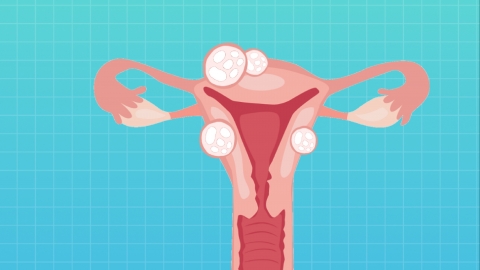Can uterine fibroids cause lower back pain?
Generally, if uterine fibroids are small, they usually do not cause back pain; however, larger fibroids may lead to back discomfort. If any symptoms occur, it is recommended to seek timely medical evaluation and treatment at a qualified hospital. The detailed analysis is as follows:

When uterine fibroids are small, they typically do not exert pressure on surrounding tissues and thus are unlikely to cause back pain. Small fibroids are commonly located within the uterine muscle wall (intramural) or beneath the outer layer of the uterus (subserosal). Due to their limited size, they do not alter the shape of the uterus or compress nerves, blood vessels, or ligaments within the pelvic cavity, maintaining a relatively stable pelvic environment. Even if the fibroid is submucosal (located beneath the uterine lining), although it may affect menstruation, it generally does not directly cause back pain. Therefore, small fibroids are rarely a direct cause of back pain.
When fibroids grow larger, the likelihood of developing back pain significantly increases. On one hand, large subserosal fibroids grow outward from the uterus, and their increased size can compress the pelvic nerves and sacral ligaments behind the uterus, resulting in sensations of heaviness or aching in the lower back. On the other hand, large intramural fibroids can significantly enlarge the uterus, increasing pressure and traction on surrounding tissues, which may lead to referred pain in the lower back. Additionally, large fibroids may undergo degenerative changes, such as red degeneration, causing local congestion and edema that can irritate pelvic nerves and result in severe back pain.
Back pain itself is a non-specific symptom that can arise from various causes, not limited to uterine fibroids. Other potential causes include kidney stones, pelvic inflammatory disease, lumbar spine disorders, and more. Therefore, if persistent back pain occurs—especially when accompanied by menstrual irregularities, pelvic pain, or other unusual symptoms—it is advisable to seek medical attention promptly for thorough evaluation to identify the underlying cause and receive appropriate treatment recommendations.







